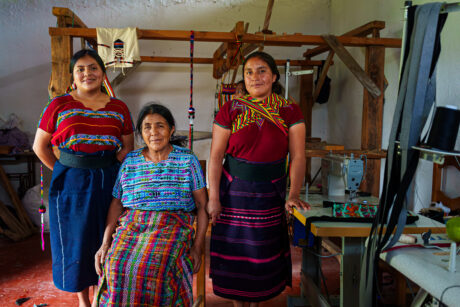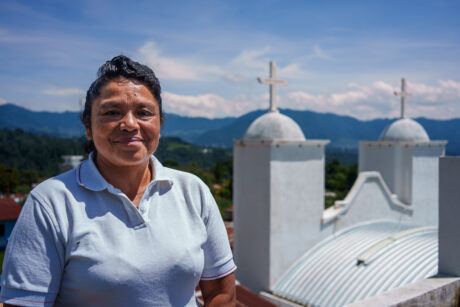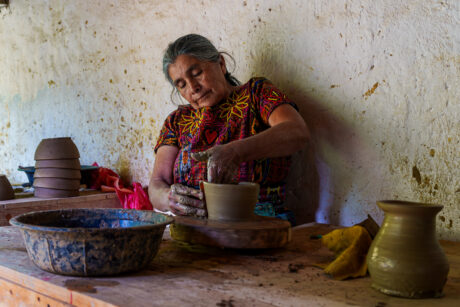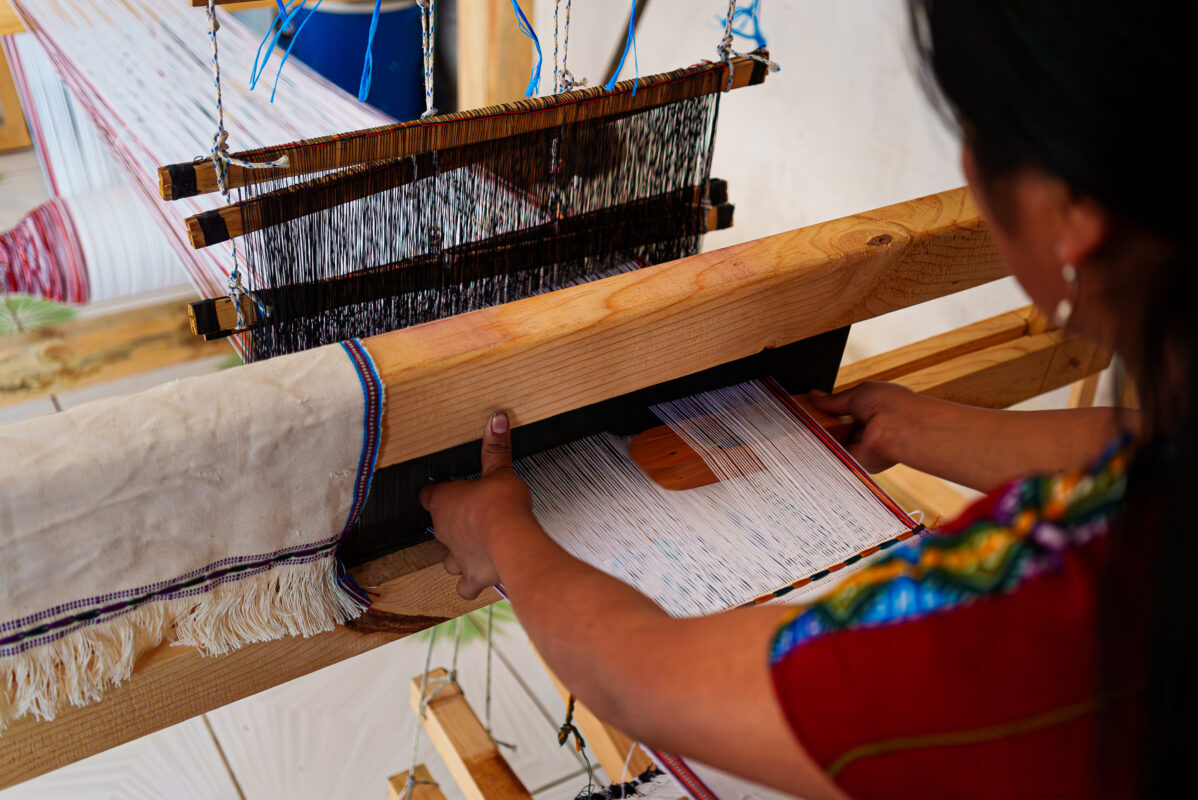San Juan Cotzal, Quiché, GuatemalaAna Cristina Toma Cruz is a 29-year-old indigenous woman from a small community of San Juan Cotzal. An elementary school teacher, university student, volunteer and member of Youth Voices for Peace Network (Red de Voceros y Voceras Juveniles para la Paz), Cruz is active in her community, driven by her desire to set an example for other young women in Guatemala who have big dreams for themselves.
“I want to be an exemplary person — in the sense that when people see me, they think ‘I can do it, because she did it,’” says Cruz. “I want to be a person who can contribute something, a person who can inspire someone.”
Cruz is already setting an example. Each morning, she goes to work, teaching at a local public elementary school. In the afternoon, she heads to a local economic empowerment organization where she volunteers to educate women in entrepreneurial topics so they can create business opportunities.
“I’ve always been interested in women’s rights and social change,” Cruz shares. “My volunteering was born out of asking myself if I can make a difference for other women.”
The answer Cruz found was yes, she could.
Addressing obstacles to equality
According to Cruz, a lack of economic independence is one of the biggest obstacles to achieving inclusion and equality in the Western Highlands of Guatemala. Women need an education or trade to advance, which can be near impossible for women in rural settings who financially depend on male family members—the traditional breadwinners in Guatemala—who typically do not prioritize women’s education.
Financial dependence is linked to economic violence, a type of violence against women and girls that occurs when an individual denies their intimate partner access to financial resources, typically as a form of abuse or control. This is a common scenario for indigenous women in the Western Highlands.
Cruz has seen the power of economic empowerment in her own life. Working as an elementary school teacher allows her to contribute to her family’s finances and pay for university, where she studies social work on the weekends.
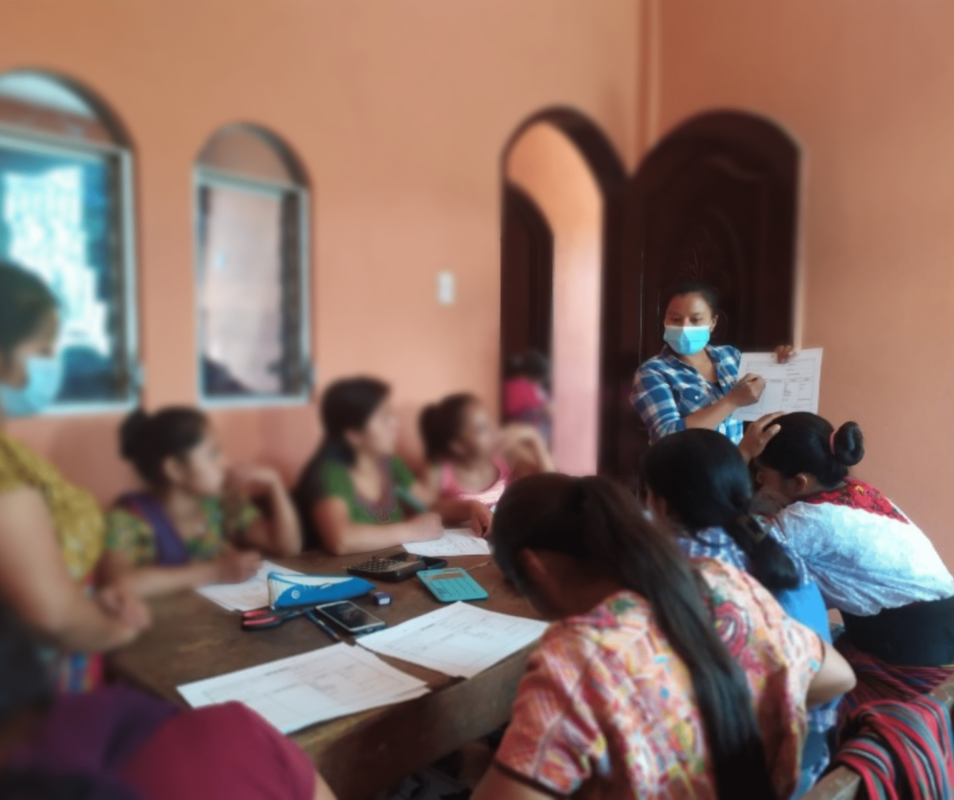
Youth Voices for Peace
In addition to teaching, studying and volunteering, Cruz also participates in Voceros Juveniles, a network of 226 young men and women in the Western Highlands who are building their leadership capacity, developing confidence and connecting on issues that matter to them through trainings and youth-led initiatives.
Voceros Juveniles brings together young people from diverse backgrounds and cultures to interact, collaborate and learn. It is Implemented by the U.S. Agency for International Development and Creative Associates International through the Peacebuilding Project and the Central American Institute of Studies for Social Democracy (DEMOS).
“Through Voceros Juveniles, I have gotten involved in diverse spaces and have been able to see reality from a different perspective,” Cruz says. “In the network, we talk about a lot of different topics including social problems and this has helped me to understand the reality in other communities and the different contexts of my peers. This has been a profound learning for me.”
The Peacebuilding Project works to reduce social conflict and build social cohesion in Guatemala’s Western Highlands, prioritizing the inclusion of women, indigenous people, and youth in all programming and training them in conflict prevention and mitigation.
Voceros Juveniles provides the skills for young people to identify and reduce conflict as well as the confidence and leadership for them to bring these skills to spaces where decisions are made.
By participating in Voceros Juveniles, Cruz has learned about topics such as conflict transformation, theater and communication, the risks of irregular migration, civic participation and cyber-activism.
Learning how to effectively utilize technology for research and getting her message out more broadly has been a game-changer for Cruz.
“I’m not the youngest person in Voceros Juveniles,” says Cruz, “and I don’t have the same technology skills as some of the younger members who had easier access to digital platforms.”
With training through Voceros Juveniles, Cruz is now able to find and access reliable information for academic projects. What’s more, she has shifted her use of technology from a source of entertainment to one that inspires social change, sharing key messages about the importance of civic participation with her friends and peers in Ixil, one of 22 Mayan languages spoken in Guatemala.
Live your life for yourself
Cruz recognizes that achieving cultural and social change is a gradual process, requiring intentionality and consistency, which explains her ongoing dedication to teaching and empowering those around her.
When asked what she would say to inspire the young women in her community, Cruz exhales and pauses to gather her thoughts, mentioning there would be a lot to say.
“What I would say is that you should fight for what you want,” Cruz says. “Don’t push your dreams aside. Fight to be independent, professional women, with your own income and live your life for yourself.”
